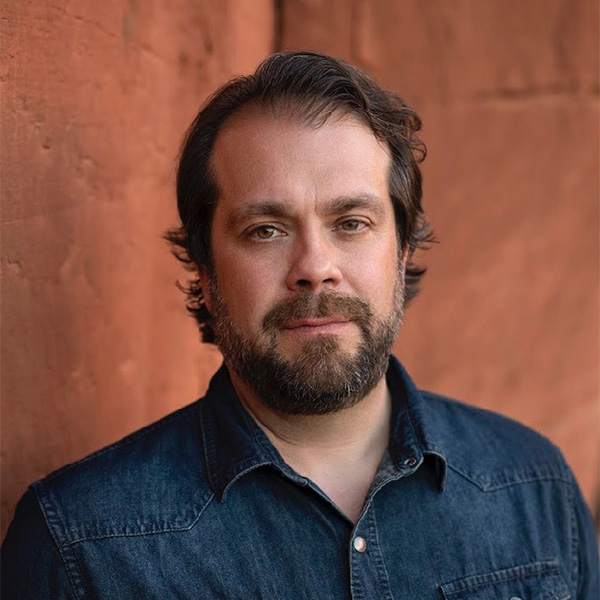The Condition of Our Condition
"You never really understand a person until you consider things from his point of view."
-Harper Lee
I slowly open my eyes, as the gray morning light filters into the room. I survey the scene around me, and notice several empty water and Gatorade bottles recklessly abandoned on the floor. I draw a deep breath, and feel the air sear the inside of my throat as I try to fill my lungs with that most vital and invisible element. Realizing I can't swallow, I fall to the floor and frantically scurry through all the empty bottles strewn across the room. I find one that contains enough water to lightly hydrate, and help loosen the dry and sandy desert inside my infected throat. I am finally able to choke down a swallow, and once again revisit the painful necessity of breathing…
This snapshot is not a tidy little story that I am going to use to prove a point, but rather an accounting of the first experience I had after I woke up today. Lately, I seem to begin every piece I write with a reference to, or acknowledgement of the COVID pandemic. Today is no different. Like the rest of the human family, I too am a grizzled veteran of this viral war.
I am now entering the sixth week of my personal (and socially mandated) quarantine. I would like to say performing my civic duty is the primary reason I honor the isolation mandates, alas, I cannot. While being a responsible citizen is a factor, I must confess having a mystery illness over the last five weeks rendering me bedridden, and Netflix bound, is by far the stronger motivator.
Over the last five weeks I have been tested for mono, the flu, strep (twice), and COVID (three times!). I have been to the ER twice, had two virtual doctor visits online, and still, I spin my wheels. I haven't seen (in person) my children, family, or anyone else for that matter in five weeks. It has become a lonely and at times, scary experience.
Falling By The Wayside
In all of my recent interactions with doctors, and medical professionals, whether in person at the ER, or over an iPad in a tent from the parking lot outside the hospital; it felt like I was being treated within a certain framework. The checklists, questions, and protocols all aimed at seeing if I would fit inside the COVID box. Each time I disclosed my well-rehearsed list of symptoms, it became predictable which would fall by the wayside, and which would be hyper-focused upon.
Of course, none of this is done out of malice, or neglect, but in a most valiant and caring effort to treat what is collectively, right in front of them. Like the rest of us, the brave and amazing medical professionals are working so very hard to stem the tide of this global illness. As they work tirelessly to suss out a very particular affliction, it makes sense that the focus is on specific symptoms. Like us, they are fearful and take all precaution, in order to help heal and keep our communities safe.
This kind of hyper-focused approach to treatment and wellness is not unique to the medical field. No matter the profession, relationship or interaction, it is not uncommon to focus solely upon the symptomatic trees, and in so doing miss the diseased forest. However, sometimes in stepping back, and refocusing our gaze, we find those orphaned and discarded symptoms require attention and healing too, even when they do not fit a specific diagnostic frame.
In the world of mental health and treatment, that same kind of hyper-focused vision only allows a struggling child, adolescent or young adult to be seen as a diagnosis. Far too often labels such as, clinically depressed, ADHD, addict, reactive attachment, etc. are affixed to a patient, like a giant scarlet letter, and with it, all the categoric assumptions and judgment.
We Lose Sight of the Patient
Narrow, and hyper-focused assessments only validate and account for a few specific markers and indicators. The more narrowly we fix our sight, the less opportunity and care become available; or treatment may simply be applied as a "catch-all," and "universal" benefit. In essence, we lose sight of the patient as a dynamic forest, featuring a variety of unique, and defining symbiotic characteristics; and reduce them to a monocultural tree farm. While diagnoses are helpful in understanding the right approach and treatment, they can also be limiting when we see the diagnosis as the patient, and not as a feature of the patient's larger health concern, and issue.
Many treatment programs have certain tracts, curriculum, and levels in which their students operate. With the best intentions, these programs funnel dynamic and unique students into categories, and set programming designed to treat monocultural diagnoses. This approach, no matter how well intentioned, is essentially trying to fit a square peg into a round hole. In assuming that someone with an "X" diagnosis, only benefits from "Y" treatment, many symptoms are left unaddressed, continuing to fester and compromise overall wellness.
Striving to Meet Students Exactly Where They Are
At WinGate/Expanse Therapy Programs, we believe it is essential to evaluate all of the dynamics, issues, and situations that have led someone to treatment. This allows us to create a supportive and healing therapeutic plan, individualized to provide each student the most fertile environment and program in which they can grow, heal, and thrive. Never forcing students into a diagnostic box, or fitting them into the typical level system universal treatment model, WinGate/Expanse strives to meet students exactly where they are.
We adapt our approach and treatment to fit each student. Recognizing that people are more than a label, or a shape to be fit into a pre existing hole, we look beyond a diagnosis, and search for all of the contributing symptoms and factors that require attention and healing. We listen, empathize, and work individually with each student as they navigate their path, and prepare them to face the challenges and hard times that will inevitably come.
As we sit with, listen to, and walk (at least) a mile in their shoes, we are able to see our students as the dynamic, unique and complex people they are. And as we meet them where they are in their journey, we offer experiences, challenges, and opportunities to heal, and grow. We honor their efforts, celebrate their successes, and sit with them in their struggles. Together, with the student, we create an individualized road map, leading them back to their true self, and relationships that matter most.
This article continues on the next page..

